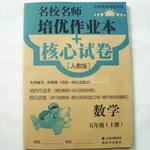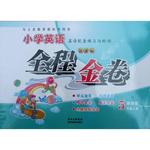题目内容
Few laws are so effective that you can see results just days after they take effect. But in the nine days since the federal cigarette tax more than doubled-to $1.01 per pack-smokers have jammed telephone "quit lines" across the country seeking to kick the habit.
This is not a surprise to public health advocates. They've studied the effect of state tax increases for years, finding that smokers, especially teens, are price sensitive. Nor is it a shock to the industry, which fiercely fights every tax increase.
The only wonder is that so many states insist on closing their ears to the message. Tobacco taxes improve public health, they raise money and most particularly, they deter people from taking up the habit as teens, which is when nearly all smokers are addicted. Yet the rate of taxation varies widely.
In Manhattan, for instance, which has the highest tax in the nation, a pack of Marlboro Light Kings cost $10.06 at one drugstore Wednesday. In Charleston, S.C., where the 7-cent-a-pack tax is the lowest in the nation, the price was $4.78.
The influence is obvious.
In New York, high school smoking hit a new low in the latest surveys-13.8%, far below the national average. By comparison, 26% of high school students smoke in Kentucky. Other low-tax states have similarly depressing teen-smoking records.
Hal Rogers, Representative from Kentucky, like those who are against high tobacco taxes, argues that the burden of the tax falls on low-income Americans "who choose to smoke".
That's true. But there is more reason in keeping future generations of low-income workers from getting hooked in the first place. As for today's adults, if the new tax drives them to quit, they will have more to spend on their families, cut their risk of cancer and heart disease and feel better.
1.The text is mainly about .
A. the price of cigarettes
B. the rate of teen smoking
C. the effect of tobacco tax increase
D. the differences in tobacco tax rate
2.What does the author think is a surprise?
A. Teen smokers are price sensitive
B. Some states still keep the tobacco tax low
C. Tobacco taxes improve public health
D. Tobacco industry fiercely fights the tax rise
3.Rogers' attitude towards the low-income smokers might be that of .
A. tolerance B. unconcern
C. doubt D. sympathy
4.What can we learn from the last paragraph?
A. The new tax will be beneficial in the long run
B. Low-income Americans are more likely to fall ill
C. Future generations will be hooked on smoking
D. Adults will depend more on their families
 名校名师培优作业本加核心试卷系列答案
名校名师培优作业本加核心试卷系列答案 全程金卷系列答案
全程金卷系列答案
